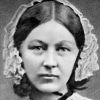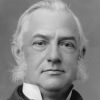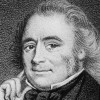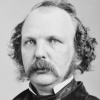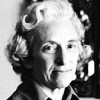One of the most amazing and perplexing features of mainstream Christianity is that seminarians who learn the historical-critical method in their Bible classes appear to forget all about it when it comes time for them to be pastors. They are taught critical approaches to Scripture, they learn about the discrepancies and contradictions, they discover all sorts of historical errors and mistakes, they come to realize that it is difficult to know whether Moses existed or what Jesus actually said and did, they find that there are other books that were at one time considered canonical but that ultimately did not become part of Scripture (for example, other Gospels and Apocalypses), they come to recognize that a good number of the books of the Bible are pseudonymous (for example, written in the name of an apostle by someone else), that in fact we don’t have the original copies of any of the biblical books but only copies made centuries later, all of which have been altered. They learn all this, and yet when they enter church ministry they appear to put it back on the shelf.
Bart D. Ehrman (b. 1955) American Biblical scholar, author
Jesus, Interrupted, ch. 1 “A Historical Assault on Faith” (2009)
(Source)
Quotations about:
theology
Note not all quotations have been tagged, so Search may find additional quotes on this topic.
If there is an all-powerful and loving God in this world, why is there so much excruciating pain and unspeakable suffering? The problem of suffering has haunted me for a very long time. It was what made me begin to think about religion when I was young, and it was what led me to question my faith when I was older. Ultimately, it was the reason I lost my faith.
Bart D. Ehrman (b. 1955) American Biblical scholar, author
God’s Problem, ch. 1 “Suffering and a Crisis of Faith” (2008)
(Source)
Love is the abridgment of all theology.
François de Sales (1567-1622) French bishop, saint, writer [a.k.a. Francis de Sales, b. François de Boisy]
Treatise on the Love of God, Book 9, ch. 1 [tr. Mackey (1884)]
(Source)
On the necessary points, unity. On the questionable points, liberty. In everything, love.
Augustine of Hippo (354-430) Christian church father, philosopher, saint [b. Aurelius Augustinus]
(Misattributed)
A commentary on theological / doctrinal dispute, frequently attributed to Augustine, but not found in his works.
The first known occurrence of such an expression is in Marco Antonio de Dominis, De Republica Ecclesiastica, Book 4, ch. 8, penultimate sentence (1617):
Omnesque mutuam amplecteremur unitatem in necessariis, in non necessariis libertatem, in omnibus caritatem.
[And let us all embrace one another, unity in what is necessary, liberty in what is not necessary, charity in all things.]
The phrase was also adapted by Richard Baxter (1615-1691) as his motto. See also Rupertus Meldenius (1626).
More discussion about this quotation here: Liber locorum communium: In necessariis unitas, in non necessariis libertas, in utrisque caritas (Marco Antonio De Dominis, 1617), cf. In necessariis unitas, in dubiis libertas, in omnibus caritas (and other variants). English: "In essentials unity ..."
It is impossible to exaggerate the evil work theology has done in the world. What destruction of the beautiful monuments of past ages, what waste of life, what disturbance of domestic and social happiness, what perverted feelings, what blighted hearts, have always marked its baneful progress.
Lydia Maria Child (1802-1880) American abolitionist, activist, journalist, suffragist
The Progress of Religious Ideas Through Successive Ages, Vol. 3, “Concluding Chapter” (1855)
(Source)
Child is specifically referring to religious thinking and doctrine removed from sentiments of reverence, justice, and benevolence.
It is a curious accident of history that the Christian religion became heavily involved with theology. No other religion finds it necessary to formulate elaborately precise statements about the abstract qualities and relationships of gods and humans. […] The idea that God may be approached and understood through intellectual analysis is uniquely Christian.
Freeman Dyson (1923-2020) English-American theoretical physicist, mathematician, futurist
The Scientist as Rebel, Part 4, ch. 25 “Is God in the Lab?” (2006)
(Source)
Originally published in New York Review of books (1998-05-28).
I believe that thousands of men would be orthodox enough in certain points, if divines had not been too curious, or too narrow, in reducing orthodoxy within the compass of subtleties, niceties, and distinctions, with little warrant from Scripture, and less from reason or good policy.
It is the speculations of crazy theologists which have made a Babel of a religion the most moral and sublime ever preached to man, and calculated to heal, and not to create differences. These religious animosities I impute to those who call themselves his ministers, and who engraft their casuistries on the stock of his simple precepts. I am sometimes more angry with them than is authorised by the blessed charities which he preached.
Thomas Jefferson (1743-1826) American political philosopher, polymath, statesman, US President (1801-09)
Letter (1819-06-25) to Ezra Styles Ely
(Source)
The benevolent and sublime reformer [Jesus] of that religion [Judaism] has told us only that god is good and perfect, but has not defined him. I am therefore of his theology, believing that we have neither words nor ideas adequate to that definition. and if we could all, after his example, leave the subject as undefinable, we should all be of one sect, doers of good & eschewers of evil. No doctrines of his lead to schism.
Thomas Jefferson (1743-1826) American political philosopher, polymath, statesman, US President (1801-09)
Letter (1819-06-25) to Ezra Styles Ely
(Source)
Well, that’s Philosophy I’ve read,
And Law and Medicine, and I fear
Theology, too, from A to Zed;
Hard studies all, that have cost me dear.
And so I sit, poor silly man
No wiser now than when I began.[Habe nun, ach! Philosophie,
Juristerei und Medizin,
Und leider auch Theologie
Durchaus studiert, mit heißem Bemühn.
Da steh ich nun, ich armer Tor!
Und bin so klug als wie zuvor.]Johann Wolfgang von Goethe (1749-1832) German poet, statesman, scientist
Faust: a Tragedy [eine Tragödie], Part 1, sc. 4 “Night,” ll. 354ff (1808-1829) [tr. Luke (1987)]
(Source)
Some translations (and this site) include the Declaration, Prelude on the Stage, and Prologue in Heaven as individual scenes; others do not, leading to their Part 1 scenes being numbered three lower.
(Source (German)). Alternate translations:
I've studied now Philosophy
And Jurisprudence, Medicine,
And even, alas! Theology
All through and through with ardour keen!
Here now I stand, poor fool, and see
I'm just as wise as formerly.
[tr. Priest (1808)]
Now I have toil'd thro' all; philosophy,
Law, physic, and theology: alas!
All, all I have explor'd; and here I am
A weak blind fool at last: in wisdom risen
No higher than before.
[tr. Coleridge (1821)]
I have now, alas, by zealous exertion, thoroughly mastered philosophy, the jurist's craft, and medicine -- and to my sorrow, theology too. Here I stand, poor fool that I am, just as wise as before.
[tr. Hayward (1831)]
I have, alas! Philosophy,
Medicine, Jurisprudence too,
And to my cost Theology,
With ardent labour, studied through.
And here I stand, with all my lore,
Poor fool, no wiser than before.
[tr. Swanwick (1850)]
Have now, alas! quite studied through
Philosophy and Medicine,
And Law, and ah! Theology, too,
With hot desire the truth to win!
And here, at last, I stand, poor fool!
As wise as when I entered school
[tr. Brooks (1868)]
I've studied now Philosophy
And Jurisprudence, Medicine, --
And even, alas! Theology, --
From end to end, with labor keen;
And here, poor fool! with all my lore
I stand, no wiser than before:
[tr. Taylor (1870)]
There now, I’ve toiled my way quite through
Law, Medicine, and Philosophy,
And, to my sorrow, also thee,
Theology, with much ado;
And here I stand, poor human fool,
As wise as when I went to school.
[tr. Blackie (1880)]
I have studied, alas! Philosophy,
And Jurisprudence, and Medicine, too,
And saddest of all, Theology,
With arden labor, through and through!
And here I stick, as wise, poor fool,
As when my steps first turned to school.
[tr. Latham (1908)]
I have, alas, studied philosophy,
Jurisprudence and medicine, too,
And, worst of all, theology
With keen endeavor, through and through --
And here I am, for all my lore,
The wretched fool I was before.
[tr. Kaufmann (1961)]
Alas, I have studied philosophy,
the law as well as medicine,
and to my sorrow, theology;
studied them well with ardent zeal,
yet here I am, a wretched fool
no wiser than I was before.
[tr. Salm (1962)]
I have pursued, alas, philosophy,
Jurisprudence, and medicine, And, help me God, theology,
With fervent zeal through thick and thin.
And here, poor fool, I stand once more,
No wiser than I was before.
[tr. Arndt (1976)]
I've studied, alas, philosophy,
Law and medicine, recto and verso,
And how I regret it, theology also,
Oh God, how hard I've slaved away,
With what result? Poor foolish old man,
I'm not whit wiser than when I began!
[tr. Greenberg (1992)]
Medicine, and Law, and Philosophy --
You've worked your way through every school,
Even, God help you, Theology,
And sweated at it like a fool.
Why labour at it any more?
You're no wiser now than you were before.
[tr. Williams (1999)]
Ah! Now I’ve done Philosophy,
I’ve finished Law and Medicine,
And sadly even Theology:
Taken fierce pains, from end to end.
Now here I am, a fool for sure!
No wiser than I was before.
[tr. Kline (2003)]
To me, good works are more important than theology. We all know that religion has been historically, and still is today, a cause of great evil as well as great good in human affairs. We have seen terrible wars and terrible persecutions conducted in the name of religion. We have also seen large numbers of people inspired by religion to lives of heroic virtue, bringing education and medical care to the poor, helping to abolish slavery and spread peace among nations. Religion amplifies the good and evil tendencies of individual souls. Religion will always remain a powerful force in the history of our species. To me, the meaning of progress in religion is simply this, that as we move from the past to the future the good works inspired by religion should more and more prevail over the evil.
Freeman Dyson (1923-2020) English-American theoretical physicist, mathematician, futurist
“Progress in Religion,” speech accepting the Templeton Prize, Washington National Cathedral (9 May 2000)
(Source)
The true foundation of theology is to ascertain the character of God. It is by the aid of Statistics that law in the social sphere can be ascertained and codified, and certain aspects of the character of God thereby revealed. The study of statistics is thus a religious service.
Florence Nightingale (1820-1910) English social reformer, statistician, founder of modern nursing
(Attributed)
Attributed in F.N. David in Games, Gods, and Gambling: A History of Probability and Statistical Ideas (1962).
There is a related variant of this quote: "To understand God's thoughts we must study statistics, for these are the measure of his purpose." This appears to be a paraphrase by Francis Galton of her beliefs (in full in Karl Pearson, Life of Francis Galton, Vol. 2, ch. 13, sec. 1 (1924)). While Galton is describing her beliefs, the quotation is often rewritten from third to first person, as though it were something she said.
The position which believers and unbelievers occupy with regard to their various forms of faith is very much the same all over the world. The difficulties which trouble us, have troubled the hearts and minds of men as far back as we can trace the beginnings of religious life. The great problems touching the relation of the Finite to the Infinite, of the human mind as the recipient, and of the Divine Spirit as the source of truth, are old problems indeed; and while watching their appearance in different countries, and their treatment under varying circumstances, we shall be able, I believe, to profit ourselves, both by the errors which others committed before us, and by the truth which they discovered. We shall know the rocks that threaten every religion in this changing and shifting world of ours, and having watched many a storm of religious controversy and many a shipwreck in distant seas, we shall face with greater calmness and prudence the troubled waters at home.
Max Müller (1823-1900) German-British philologist, Orientalist, religious studies founder
Chips from a German Workshop, Vol. 1, Preface (1866)
(Source)
The one and only test of a valid religious idea, doctrinal statement, spiritual experience, or devotional practice was that it must lead directly to practical compassion. If your understanding of the divine made you kinder, more empathetic, and impelled you to express this sympathy in concrete acts of loving-kindness, this was good theology. But if your notion of God made you unkind, belligerent, cruel, or self-righteous, or if it led you to kill in God’s name, it was bad theology. Compassion was the litmus test for the prophets of Israel, for the rabbis of the Talmud, for Jesus, for Paul, and for Muhammad, not to mention Confucius, Lao-tsu, the Buddha, or the sages of the Upanishads.
Karen Armstrong (b. 1944) British author, comparative religion scholar
The Spiral Staircase: My Climb Out of Darkness (2004)
(Source)
Think not the faith by which the just shall live
Is a dead creed, a map correct of heaven,
Far less a feeling fond and fugitive,
A thoughtless gift, withdrawn as soon as given.
It is an affirmation and an act
That bids eternal truth be present fact.Hartley Coleridge (1796-1849) English poet, biographer, essayist, teacher
“The Just Shall Live By Faith”
(Source)
And so these men of Indostan
Disputed loud and long,
Each in his own opinion
Exceeding stiff and strong.
Though each was partly in the right
And all were in the wrong!So oft in theologic wars,
The disputants, I ween,
Rail on in utter ignorance
Of what each other mean,
And prate about an Elephant
Not one of them has seen!John Godfrey Saxe (1816-1887) American poet and satirist
“The Blind Men and the Elephant,” st. 8 and “Moral” (c. 1861; publ. 1872)
(Source)
Saxe introduced the parable, which dates back to India (c. 500 BC) to American audiences. He wrote the poem originally against what he felt was extremism on both sides that led the the American Civil War.
The doctor asserted, “Sure religion is a fine influence — got to have it to keep the lower classes in order — fact, it’s the only thing that appeals to a lot of these fellows and makes ’em respect the rights of property. And I guess this theology is O.K.; lot of wise old coots figured it out, and they knew more about it than we do.” He believed in the Christian religion, and never thought about it; he believed in the church, and seldom went near it; he was shocked by Carol’s lack of faith, and wasn’t quite sure what was the nature of the faith that she lacked.
Theology being the work of males, original sin was traced to the female.
Barbara W. Tuchman (1912-1989) American historian and author
A Distant Mirror: The Calamitous 14th Century, ch. 9 (1978)
(Source)
Indeed I reply in a single word to the sentiments of the saints on these questions about nature; in theology, to be sure, the force of authorities is to be weighed, in philosophy, however, that of causes. Therefore, a saint is Lactantius, who denied the rotundity of the earth; a saint is Augustine, who, admitting the rotundity, yet denied the antipodes; worthy of sainthood is the dutiful performance of moderns who, admitting the meagreness of the earth, yet deny its motion. But truth is more saintly for me, who demonstrate by philosophy, without violating my due respect for the doctors of the church, that the earth is both round and inhabited at the antipodes, and of the most despicable size, and finally is moved among the stars.
Most Mens Anger about Religion is as if two Men should quarrel for a Lady they neither of them care for.
George Savile, Marquis of Halifax (1633-1695) English politician and essayist
“Religion,” Political, Moral, and Miscellaneous Thoughts and Reflections (1750)
(Source)
The Christian priesthood, finding the doctrines of Christ levelled to every understanding, and too plain to need explanation, saw, in the mysticisms of Plato, materials with which they might build up an artificial system which might, from it’s indistinctness, admit everlasting controversy, give employment for their order, and introduce it to profit, power & pre-eminence. The doctrines which flowed from the lips of Jesus himself are within the comprehension of a child; but thousands of volumes have not yet explained the Platonisms engrafted on them: and for this obvious reason that nonsense can never be explained.
Thomas Jefferson (1743-1826) American political philosopher, polymath, statesman, US President (1801-09)
Letter to John Adams (5 Jul 1814)
(Source)
On the dogmas of religion as distinguished from moral principles, all mankind, from the beginning of the world to this day, have been quarrelling, fighting, burning and torturing one another, for abstractions unintelligible to themselves and to all others, and absolutely beyond the comprehension of the human mind. Were I to enter on that arena, I should only add an unit to the number of Bedlamites.
Thomas Jefferson (1743-1826) American political philosopher, polymath, statesman, US President (1801-09)
Letter to Matthew Carey (11 Nov 1816)
(Source)
Mistakenly identified in some sources as Archibald Carey.
As to myself, my religious reading has long been confined to the moral branch of religion, which is the same in all religions; while in that branch which consists of dogmas, all differ, all have a different set. The former instructs us how to live well and worthily in society; the latter are made to interest our minds in the support of the teachers who inculcate them. Hence for one sermon on a moral subject, you hear ten on the dogmas of the sect.
Thomas Jefferson (1743-1826) American political philosopher, polymath, statesman, US President (1801-09)
Letter to Thomas Leiper (11 Jan 1809)
(Source)
The essence of the Liberal outlook lies not in what opinions are held, but in how they are held: instead of being held dogmatically, they are held tentatively, and with a consciousness that new evidence may at any moment lead to their abandonment. This is the way in which opinions are held in science, as opposed to the way in which they are held in theology. The decisions of the Council of Nicaea are still authoritative, but in science fourth century opinions no longer carry any weight.
Bertrand Russell (1872-1970) English mathematician and philosopher
“Philosophy and Politics,” lecture, National Book League, London (1946-10-23)
(Source)
Collected in Unpopular Essays (1950).
The Christian religion when divested of the rags in which they [the clergy] have inveloped it, and brought to the original purity & simplicity of it’s benevolent institutor, is a religion of all others most friendly to liberty, science, & the freest expansions of the human mind.
Thomas Jefferson (1743-1826) American political philosopher, polymath, statesman, US President (1801-09)
Letter to Moses Robinson (1801)
(Source)
We probably differ on that which relates to the dogmas of theology, the foundation of all sectarianism, and on which no two sects dream alike; for if they did they would then be of the same. you say you are a Calvinist. I am not. I am of a sect by myself, as far as I know.
Thomas Jefferson (1743-1826) American political philosopher, polymath, statesman, US President (1801-09)
Letter (1819-06-25) to Ezra Stiles Ely
(Source)
National budgets are a nation’s theology walking.
Joan D. Chittister (b. 1936) American Benedictine nun, author and lecturer
“From Where I Stand,” column, National Catholic Reporter (17 Feb 2005)
(Source)
I believe in the gospel of Good Living. You can not make any god happy by fasting. Let us have good food, and let us have it well cooked — and it is a thousand times better to know how to cook than it is to understand any theology in the world.
Robert Green Ingersoll (1833-1899) American lawyer, agnostic, orator
“What Must We Do to Be Saved?” Sec. 11 (1880)
(Source)
How can cosmic religious feeling be communicated from one person to another, if it can give rise to no definite notion of a God and no theology? In my view, it is the most important function of art and science to awaken this feeling and keep it alive in those who are receptive to it.
Albert Einstein (1879-1955) German-American physicist
“Religion and Science,” New York Times Magazine (9 Nov 1930)
(Source)
Many a long dispute among Divines may be thus abridg’d, It is so; It is not so. It is so; It is not so.
Benjamin Franklin (1706-1790) American statesman, scientist, philosopher, aphorist
Poor Richard’s Almanack (1743)
(Source)
On the necessary points, unity. On the questionable points, liberty. In everything, love.
[In necessariis unites, in non necessariis libertas, in omnibus caritas.]
Rupertus Meldenius (1582-1651) German writer [pseud. of Peter Meiderlin]
Paraenesis Votiva pro Pace Ecclesiae ad Theologos Augustanae Confessionis [Votive Counsel for the Peace of the Church, to the Theologians of the Augustan Confession] (1626)
Also translated as "essentials" and "non-essentials."
Paraphrase of final lines of the work:
Verbo dicam: Si nos servaremus IN necesariis Unitatem, IN non-necessariis Libertatem, IN UTRISQUE Charitatem, optimo certe loco essent res nostrae.
[In a word, were we to observe unity in essentials, liberty in incidentals, and in all things charity, our affairs would be certainly in a most happy situation.]
Commonly attributed to St Augustine, but also to John Wesley, Richard Baxter, and several others.









